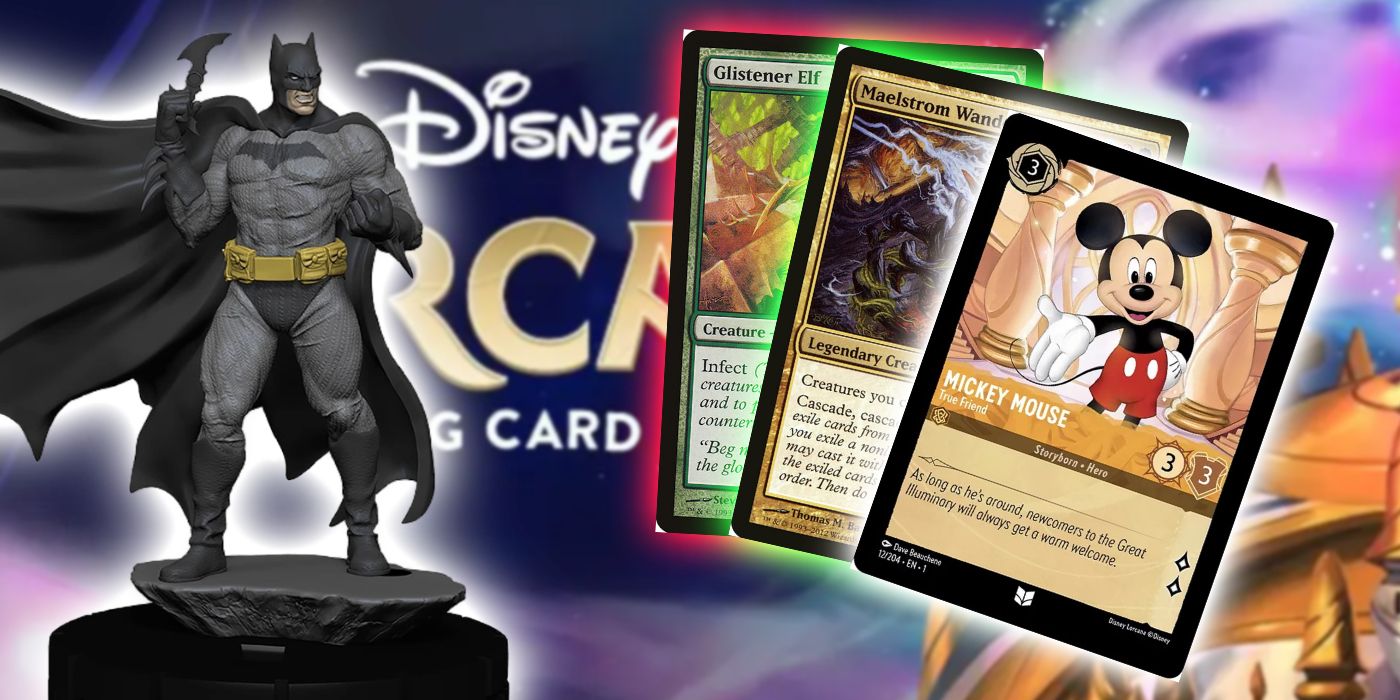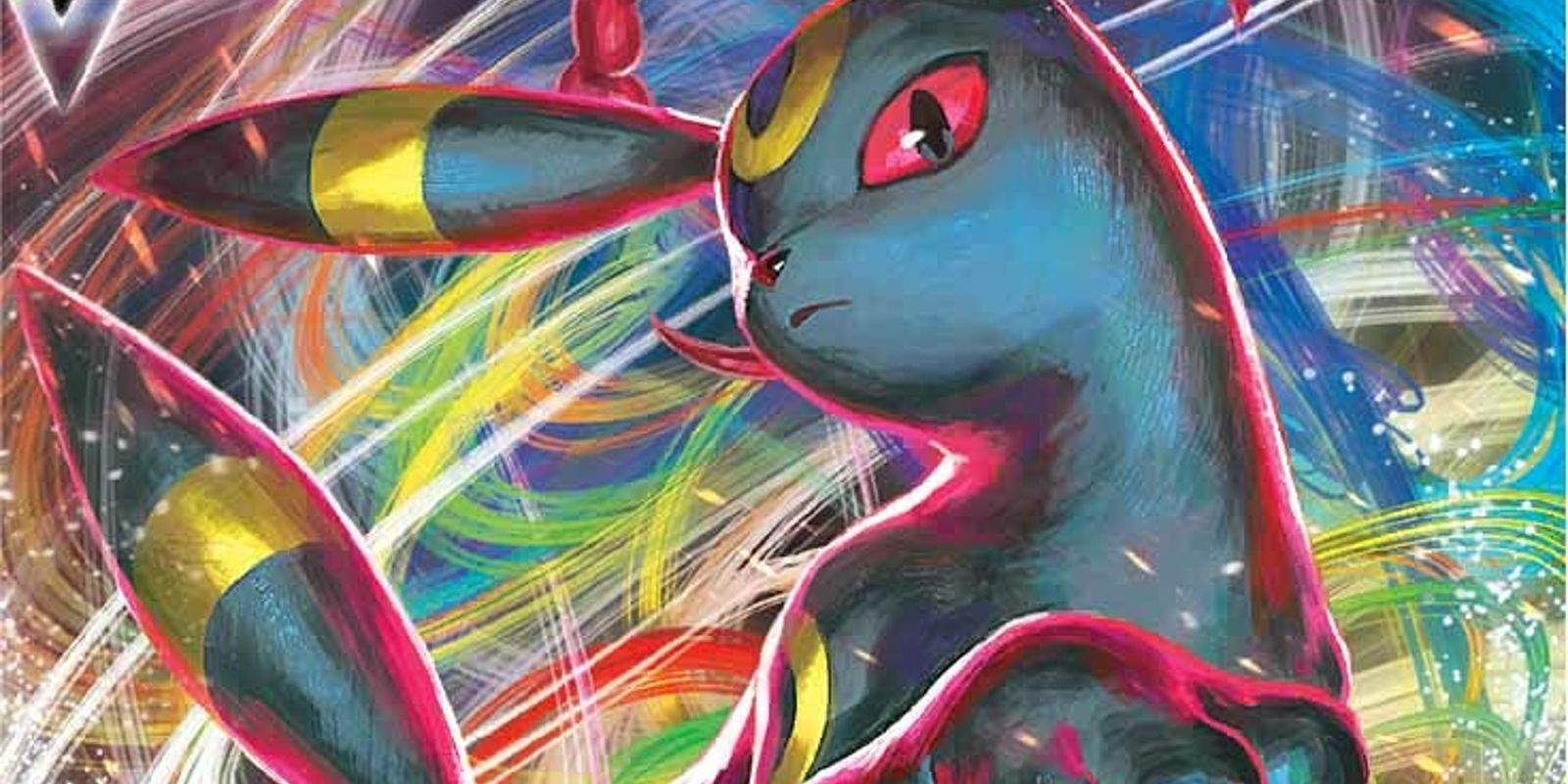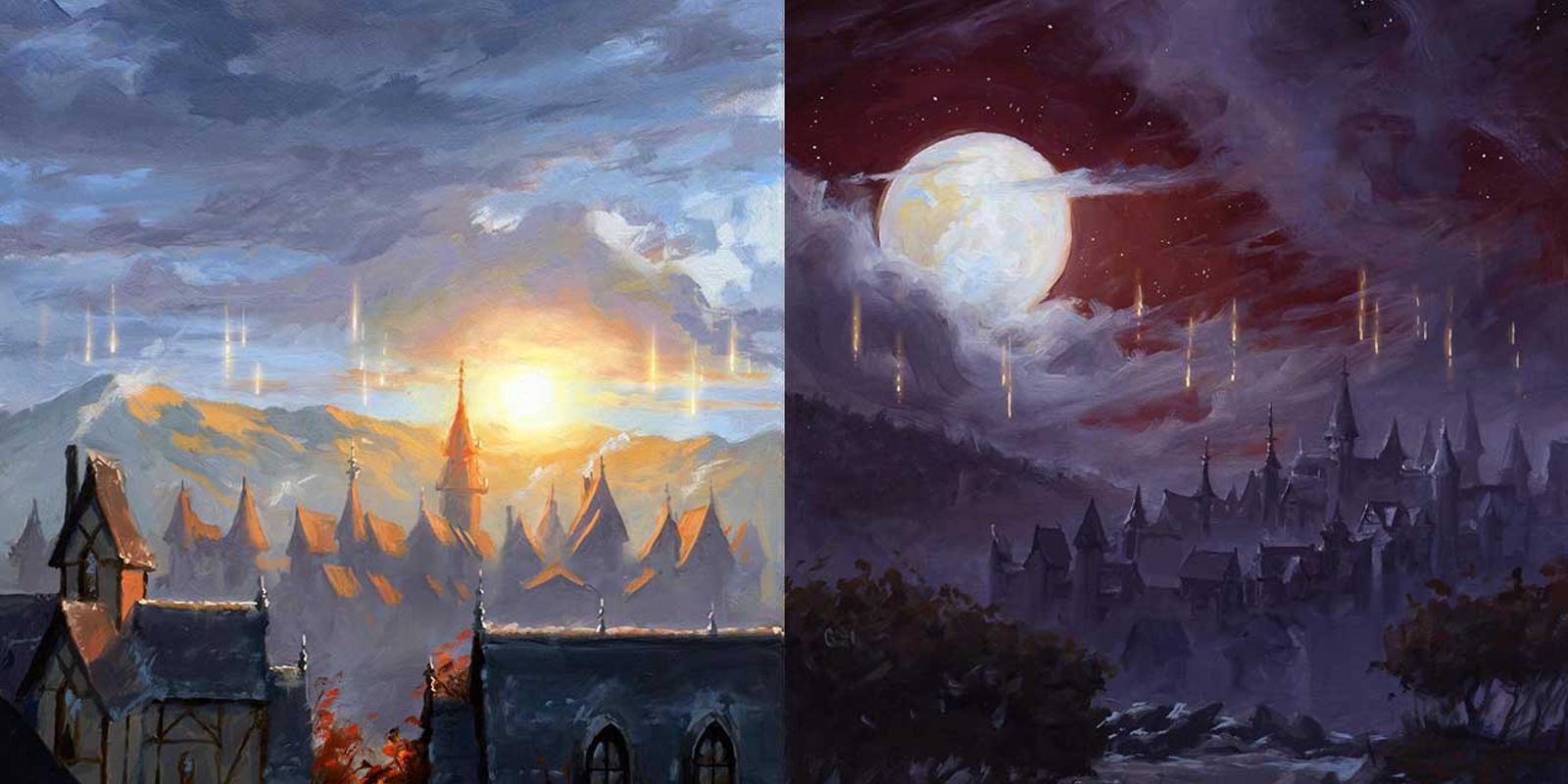In the short time since its release, Disney's Lorcana has taken game stores and players by storm. With only a single set under its belt so far, there will never be a better time for players to familiarize themselves with Lorcana and its mechanics. Like all living or collectible card games, the complexity Lorcana has to offer is only going to increase with time.
In fact, Lorcana's second set, the upcoming Rise of the Floodborn, is already poised to introduce at least one new mechanic in Resist. Though it is still unknown whether Resist will be the only mechanic making its debut in Rise of the Floodborn, there is no doubt that there will be plenty more to come in future releases. Given that it is a brand new game, there is a lot that Lorcana can learn from predecessors like Magic: the Gathering and Pokémon when it comes to what mechanics players are fond enough of to consider adopting or adapting for its own use, not to mention ones that it should avoid entirely.
Mechanics Lorcana Should Adopt
Kicker - Magic: The Gathering
Kicker is one of the most classic mechanics in Magic: The Gathering, and is considered by many to be one of the best-designed mechanics as well. Cards with Kicker or Kicker-like abilities allow the player casting them to pay an additional cost for an additional effect when doing so, though this is always optional.
As it stands, Kicker is one of the simplest mechanics that Magic: The Gathering has to offer, and it is one that can be easily adapted for any other game with a resource system at its core. This ease of understanding and use makes Kicker perfect for Lorcana, especially when the game's Ink system already plays like a simplified version of Magic's Mana.
Retrace/Flashback - Magic: The Gathering
Both Retrace and Flashback allow for Magic: The Gathering players to recast spells from their graveyard. In the case of the former, this comes at the expense of discarding a land card, whereas the latter usually adjusts the original casting cost to a different amount of mana. Like Kicker and Cascade, these are easy enough mechanics to follow, yet their versatility makes them invaluable to the formats where they are present.
Plenty of decks across numerous formats make good use of Retrace and Flashback, even if they aren't centered around those mechanics as a win condition unto themselves. Unlike some other mechanics, Retrace and Flashback don't inherently rely on players to do anything outside the normal game loop. Merely having access to mana on the field and drawing extra lands is enough to set these mechanics up for being put to good use. Lorcana could easily reframe the idea of recasting a Song from discard as its echo, encore, or reprise, adding a layer of flavor to these kinds of mechanics that would be right at home in a game already turning classic Disney tunes into game pieces.
Exploit Weakness/Psychic Blast - Heroclix
The glory days of Heroclix may be over, but there is no question as to the impact it left on fans. Featuring miniatures based on Marvel, DC, and other pop culture properties, Heroclix gave players a chance to reenact their favorite comic book battles or venture into the game's competitive scene. Either way, players got to assemble countless lineups of heroes and villains, each of whom had their own unique set of powers.
Among the most valuable of these powers are Exploit Weakness and Psychic Blast, both of which provide penetrating damage that goes right through any damage reduction abilities such as Toughness, Invulnerability, or Impervious. Though it might not seem like Lorcana or any other card game would want to pull directly from a tabletop battlefield, it already has the perfect reason to do so. As seen in previews for Rise of the Floodborn, Lorcana is set to introduce Resist, a damage reduction mechanic that is nearly identical to Heroclix's. As such, Lorcana could use a mechanic that ignores damage reduction effects, especially if it wants cards like Grab Your Swords to maintain any impact on its metagame.
Mill - Magic: The Gathering
Milling opponents out, or reducing their deck to zero and forcing them to draw from nothing and lose the game, has been a beloved if often bemoaned strategy in Magic: The Gathering for decades. In the game's flavor, the act of running an opponent out of cards is akin to running their mind dry of any possible recourse. Lorcana lore works a bit differently, but drawing from an empty deck still loses a player the game all the same.
That said, there is currently no real support for any dedicated mill strategy in Lorcana. There might be a single Wheel of Fortune style effect in the form of A Whole New World, but as of now Lorcana players can only use it to refill their own hand from zero and hope to make their opponent discard some valuable assets. Without any replacement effects preventing the opponent from drawing, these types of effects are infinitely fairer than their Magic: The Gathering counterparts. Similarly, without any dedicated mill support in print, an entire avenue for winning the game goes unexplored.
Sideboards - Magic: The Gathering/Yu-Gi-Oh!
A sixty-card deck might be at the heart of most trading card games, but the sideboard is what ensures that so many of them have healthy competitive scenes. Another mechanic made famous by Magic: The Gathering, the sideboard comprises up to fifteen cards that are part of but separate from a player's deck. By swapping cards out of their main deck for those in their sideboard between games in best-of-three matches, players can hope to better prepare for or counteract their opponents' decks, even when facing off against a vast field of other strategies.
So far, Lorcana only has a single set of 204 cards for players to worry about, meaning there are only so many viable archetypes players need to concern themselves with in the first place. On the other hand, future sets mean a wider card pool, which in turn means more archetypes that will enter the metagame before long. At that rate, it is only a matter of time before Lorcana players begin facing off against opponents whom they have little to no chance of defeating with whatever sixty-card strategy they have chosen, and the best way to fix that is by giving them access to a sideboard that might just have all the answers they need.
Mechanics Lorcana Should Avoid
Cascade - Magic: The Gathering
Cascade is another fairly straightforward Magic: The Gathering mechanic, although it isn't nearly as widely accepted by players as being beneficial to the game as Kicker. Cascade triggers when a card with the ability is cast, exiling cards from the top of the caster's library until they reveal a non-land card of lesser mana value than the original spell, which they may then cast for free.
For how easy it is to understand, Cascade has led to numerous archetypes of its own across a variety of competitive Magic: The Gathering formats. Many players will begrudgingly accept the presence of Living End strategies as a fact of life. On the other hand, there are just as many if not more who have come to bemoan the impact of cards such as Crashing Footfalls, which helped to usher in a new age of Modern along with other cards from Modern Horizons and its sequel set. Lorcana's focus on appealing to a great number of players, and its somewhat lower level of interactivity, would make it a bad fit for a Cascade-like mechanic.
Ex/GX/V/V-Max - Pokémon
The Pokémon trading card game has become infamous for highlighting what a single instance of a single card or ability can do. While this arguably started with Pokémon-EX as introduced in the EX Ruby & Sapphire expansion, it wasn't until Pokémon-GX arrived in Sun & Moon that players started seeing mechanics that were built around being single-use only.
Pokémon-GX worked similarly to their EX counterparts, with the addition of special GX Attacks that provided tremendous effects, but could only be used once per game. This kind of bookkeeping is already too much in Pokémon, and that's a game where the player only has one active character at a time. Having to track single-use abilities across numerous different Lorcana characters would be far more trouble than it is worth.
Day/Night - Magic: The Gathering
In any card game, there are going to be things that players need to keep track of. Most often this comes in the form of their life totals, or in Lorcana the amount of Lore they have amassed. Occasionally, there will be a mechanic that asks players to keep track of something else entirely, and although Magic mechanics like Monarch and The City's Blessing are pretty popular the Day and Night cycle is not one of them.
Introduced in Innistrad: Midnight Hunt, the Day and Night cycle was Magic: The Gathering's latest attempt to translate classic horror tropes to the TCG format. At face value, Day and Night does this successfully by determining what form werewolves and similar beasts take when they hit the battlefield. Digging a little deeper, however, it quickly becomes clear that Day and Night cycles are determined by a convoluted system of tracking how many spells a given player casts on a given turn. This isn't exactly the kind of thing most players are looking to keep track of, especially not when it must be kept track of every turn, regardless of whether any relevant cards are in play. Lorcana should focus on engaging, impactful mechanics going forward.
Poison/Toxic/Infect - Magic: The Gathering
Whereas there is a definite reason to want an ability or mechanic that eats through an opponent's defenses, those that whittle them down to nothing in record time aren't necessarily in the same category. This is precisely the case when it comes to mechanics such as Infect, Poison, and Toxic from Magic: The Gathering, all of which effectively cut the opposing player's life total in half from the start.
Despite giving players another way to win, these mechanics also tend to end games prematurely. Though Infect decks still rely on creatures to win games by connecting with their opponent in combat, they frequently win as early as turn three by making use of cheap threats and even cheaper pump spells. Considering Lorcana doesn't rely on attacking a player's opponent directly, a mechanic such as Toxic simply wouldn't fit the game's tone. Beyond that, giving players a way of setting their game clock forward in such a drastic fashion could easily be met with derision from a player base looking to escape the trappings of more competitive trading card games. It's definitely smarter for Lorcana to leave the 20 Lore goal right where it is.
Companions/Learn/Wishes - Magic: The Gathering
Magic sideboards are intended to be used as a fine-tuning option between games, but they also interact with a number of mechanics that reference cards the player owns from outside the game. Although these various mechanics all have something different to offer, they all lean directly on turning a player's sideboard into an extension of their hand rather than an extension of their deck.
In Magic: The Gathering, cards like Burning Wish let players fetch specific types of cards from outside the game yet within their sideboard, while mechanics such as Learn do the very same thing with an even smaller pool of potential cards to choose from. Thematically, Wish and Learn mechanics are resounding successes. In practice, they are slightly more controversial, though not nearly as much as Companions have been. Another way of turning a player's sideboard into part of their hand, Companions give players loose deck-building restrictions in exchange for what may as well be an eighth card in their starting hand, one that is ever present throughout the match. Lorcana is still in its infancy, and messing around with cards form outside the game is a recipe for disastrously complicated gameplay interactions.











